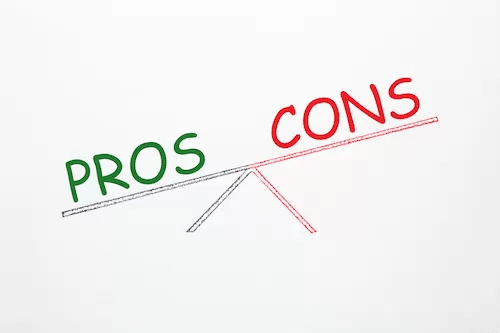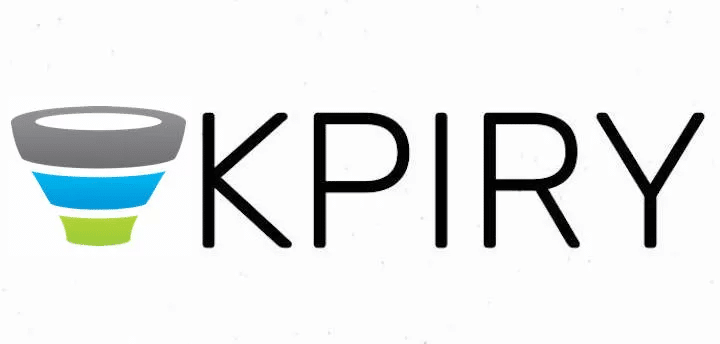 Growth hacking and growth marketing are two popular strategies that aim to drive growth. However, they differ in their approaches, goals, and outcomes.
Growth hacking and growth marketing are two popular strategies that aim to drive growth. However, they differ in their approaches, goals, and outcomes.
Whether you’re a startup looking to achieve quick growth or an established business focused on long-term sustainability. Understanding the differences between growth hacking and growth marketing can help you achieve your goals more effectively.
So What is Growth Hacking?
The term “growth hacking” was first coined by Sean Ellis in 2010 and commonly associated with startups seeking quick growth. Since then it’s become a popular strategy with startups and some small businesses.
A well known example of growth hacking strategy success is Dropbox.
Dropbox is a cloud storage service that gained massive popularity through a simple growth hack. They offered users extra free storage space for referring their friends to Dropbox. This incentivized their users to promote Dropbox to their friends and family, resulting in massive user growth.
It’s an innovative, experimental approach to achieving growth. The process identifies and tests strategies that can drive rapid growth, but with a focus towards short-term results.
It relies on creativity and innovation to find unconventional ways of driving growth. Growth hackers are known for experimenting with various tactics, such as viral and referral marketing to find the effective strategies.
Growth hacking is an innovative, experimental approach with the potential for quick results.
Another of its advantages is the ability to provide quick results with limited resources. Growth hackers often rely on low-cost or no-cost strategies to achieve growth.
However because of its pension of focusing mostly on short term results, growth hacking can be a higher risk strategy. With its potential for rapid growth, there’s a likelihood that positive results may be followed by a quick decline.
As such, this approach may not be suitable for all businesses, particularly those with a focus on long-term sustainability.
What Is Growth Marketing
As explained in this previous blog article about growth marketing. It is a more holistic, data driven approach with a focus on sustainable and long-term growth.
Unlike growth hacking, which is primarily focused on short-term results, growth marketing takes a more strategic, customer-centric approach.
It optimizes the customer journey, from acquisition to retention using a combination of strategies and tactics. Some of these include content marketing, SEO, social media, paid ads, and email marketing, to create cohesive, effective strategies.
Although growth marketing may incorporate some of the same channels as digital marketing, thats where the similarities end.
Growth marketings goal is creating sustainable growth over the long term a with focus on delivering value to customers.
Whereas digital marketing typically focuses on ‘top of funnel’ strategies and growth hacking focuses on short term rapid growth. Growth marketing takes a more complete approach to driving growth and revenue throughout the entire marketing funnel.
It provides an edge creating sustainable and long term growth by focusing on delivering value to customers. With, this, businesses to create a more loyal customer base and can drive more growth and revenue over time.
Growth marketing is a powerful strategy that can help businesses achieve growth objectives in a more scalable and sustainable way.

While growth hacking focuses on generating immediate revenue, growth marketing aims for long term growth and scalability. It accomplishes this through continuous testing and optimizing different marketing strategies.
The process involves running experiments, analyzing the results, and then scaling up the most effective strategies. With its data driven approach to marketing, businesses can make more informed decisions that will promote long term success.
Overall, it’s a highly effective method that can help businesses drive exponential, sustainable growth. Business also benefit by gaining a competitive edge in their industry.
Growth marketing prioritizes customer centricity, long term growth strategies and data-driven decision making. This provides a more strategic and sustainable approach to reaching business growth objectives.
Growth Hacking and Growth Marketing: Understanding the Key Differences

While growth hacking and growth marketing share a similar goal of driving growth, there are key differences between the two. Understanding these differences can help businesses determine which approach is best suited to their needs.
Key Difference 1: Focus
Growth hacking is focused on identifying and exploiting unconventional strategies and tactics to drive rapid growth. This often involves experimentation and iteration to find new and innovative ways to acquire and retain customers.
On the other hand, growth marketing focuses on building sustainable and scalable growth engines that deliver long term value. This often involves a more strategic approach to marketing and a focus on building relationships with customers.
Key Difference 2: Tactics
Often unconventional, growth hacking tactics may involve strategies like viral marketing, guerilla marketing, and influencer marketing. Growth hackers are constantly testing and iterating on their tactics to find what works best.
In contrast, growth marketing tactics are often more traditional and may involve strategies like content marketing, SEO, and social media. While growth marketers test and iterate on strategies, they do so in a more strategic and data driven way.
Key Difference 3: Speed vs. Sustainability
Growth hacking is focused on achieving rapid growth in a short amount of time. This can be especially valuable for startups and early-stage businesses that need to generate traction in the market quickly.
Growth marketing, however, is focused on building a sustainable and scalable growth engine over the long term. While it may take longer to see results, this approach can be more sustainable and predictable over time.
Key Difference 4: Risk
Because growth hacking often involves unconventional and high-risk tactics, there is a greater risk of failure or negative results. However, when executed effectively, growth hacking can be a powerful way to drive rapid growth.
Typically, growth marketing is less risky but may require more resources and a longer-term approach to see results.
Ultimately, the choice between growth hacking and growth marketing will depend on a variety of factors. This includes your business goals, your target audience, and your competitive landscape.
Choosing the Right Growth Approach for Your Business Needs

When it comes to choosing between growth hacking and growth marketing, there is no, one-size-fits-all approach.
The choice between these two strategies will depend on a variety of factors. Some factors include the size and stage of your business, your target audience, competition, and your overall growth goals.
For startups and early stage businesses looking to generate rapid growth in a short period, growth hacking may be worth considering.
With unconventional tactics and rapid experimentation, startups can quickly test new ideas and generate accelerated traction in the market.
Understanding the strengths and weaknesses of both approaches helps to possibly combine them in a way that makes business sense.
However, as businesses grow and mature, the focus often shifts to creating a more sustainable growth engine. One that can deliver more long term sustainable results.
This is where growth marketing shines. It provides businesses a more strategic, customer-centric approach to build a loyal customer base and drive growth over time.
Knowing the strengths and weaknesses of both approaches helps to possibly combine them in a way that makes business sense. This can create powerful and effective growth strategies, that if done right, could deliver both rapid and sustainable growth.
The choice between growth hacking, growth marketing or even using both, will depend on several factors. Things like your business goals, your target audience, and your competitive landscape.
Keep in mind that implementing a customer-centric, data driven approach with experimentation can create more effective growth strategies. These strategies can be tailored to unique needs and deliver maximum results..
Combining Growth Approaches
While growth hacking and growth marketing are both effective methods businesses use to achieve growth. They are seen as separate approaches, but they can also can be combined to create a powerful growth strategy.
By combining tactics with a strategic and customer-focused approach, businesses can achieve rapid growth in the short term while building a sustainable growth engine for the long term.
One way to combine these methods is to use growth hacking tactics to raise brand awareness and drive traffic, then use growth marketing tactics to convert that traffic into customers.
Another way is to use growth hacking tactics to test and validate marketing strategies, then use growth marketing tactics to scale those strategies over time.
It’s important to focus on delivering value to customers while using both methods together. Combining these creates a powerful and effective growth strategy that when implemented correctly, can deliver rapid growth and long term results.
Growth Hacking and Growth Marketing:
Pros and Cons

When deciding between growth hacking and growth marketing, it’s important to consider the pros and cons of each approach.
Growth Hacking Pros:
- + Rapid experimentation and iteration can help businesses quickly test new ideas and identify what works and what doesn’t.
- + Startups and early stage businesses can generate traction quickly and with limited resources.
- + Growth hacking can be a powerful way to generate rapid growth in a short amount of time.
- + Can lead to viral growth, where customers share your product or service with others.
- + Can help businesses quickly identify new markets or customer segments.
- + Focuses on experimentation and innovation, which can lead to new and creative marketing strategies.
Growth Hacking Cons:
- – Risk and sustainability over the long term due to unconventional tactics and strategies.
- – Unconventional tactics and strategies may be harmful to brand reputation.
- – Not well-suited for businesses that are looking to build a more sustainable growth engine over time.
- – Can be risky and may damage the brand’s reputation if the tactics are not ethical or legal.
- – Not all growth hacking tactics will work for every business or product/service.
- – Can lead to short-term gains that are not sustainable in the long run.
Growth Marketing Pros:
- + More strategic and sustainable approach to driving growth over the long term.
- + By building a loyal customer base and delivering value, businesses can create a more stable, predictable growth engine over time.
- + Builds a stronger relationship with customers by delivering value and meeting their needs.
- + Can help businesses differentiate themselves in a crowded market by creating a unique brand identity.
- + Focuses on long-term goals and sustainability, which can lead to consistent growth over time.
- + Involves creating a more meaningful and lasting impact on the market.
Growth Marketing Cons:
- – It may take longer to see tangible results than with growth hacking.
- – It requires more resources and expertise to execute effectively.
- – Can be expensive and time-consuming to execute effectively.
- – May not be suitable for businesses that need to generate rapid growth in a short amount of time.
The choice between growth hacking and growth marketing will depend on a variety of factors. Some factors include your business goals, your target audience, and your competitive landscape.
By understanding the pros and cons of each approach, you can make a more informed decisions about which approach is best suited for your business and your growth goals.
At The End Of The Day
Regardless of which approach you choose, it’s important to remember that growth is not a one-time event. Effective, sustainable growth is an ongoing process that requires continuous analysis, experimentation, optimization, and iteration.
By staying agile and adaptable, and by using data and insights to inform your decisions, you can build a growth engine that drives sustainable and scalable growth for your business over the long term.
The team at KPIRY are specialists in both Growth Marketing and Growth Hacking strategy and can help your business to reach its growth goals. Schedule your call with one of our growth consultants today!
